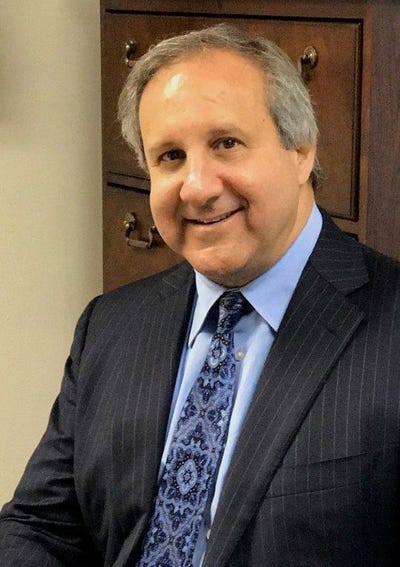Impact of Federal Estate Tax RepealImpact of Federal Estate Tax Repeal
Planning for 2017 and beyond

In our prior article in this series, we explored the inter-relationship of a decoupled state (using New Jersey and its recent estate tax repeal as an example) and planning in the uncertain environment. Once Donald J. Trump takes office, with the federal estate tax possibly up for repeal, the planning complications multiply. The key issue for clients is to consider how these significant and unanticipated changes might wreak havoc with dispositive provisions in wills and revocable trusts and why some of the simple and obvious drafting solutions can be inadequate. We’ll explore the possible federal changes in greater depth.
Possible Federal Transfer Tax Changes
The estate tax is certainly "in play" but the outcome could vary significantally and might result in:
Repeal of all federal transfer taxes and carryover basis
Repeal of the estate and generation-skipping transfer (GST) tax but not the gift tax
Repeal of the estate and GST tax but not the gift tax and imposition of a capital gains tax on death
Repeal of the estate and GST tax but not the gift tax and imposition of a capital gains tax on gift and death
The uncertainly might well result in something substantively different from the above.
Federal Repeal While State Retains an Estate Tax
If there’s a repeal of the federal estate tax, but the client still faces a state estate tax, how might this situation impact planning? One idea is to use the following sample revocable trust clause:
Notwithstanding anything herein contained to the contrary, if there is no state or federal estate tax in effect at the Grantor’s death, then all property held under this Trust at the Grantor’s death shall be paid to a trust described in Code Sec. 2056(b)(7) that would qualify for the estate tax marital deduction and the Grantor hereby grants to the Grantor’s Spouse the power to appoint the property in any such trust that is so described to the Grantor’s Spouse’s estate upon the Grantor’s Spouse's death by specific reference to this general power of appointment hereby granted so that the trust will be described in Code Sec. 2056(b)(5).
If the federal estate tax is repealed, but the applicable state estate tax isn’t repealed (or the New Jersey estate tax is reinstated) then presumably there will no longer be a federal qualified terminable interest property (QTIP) election available. The question then is whether a general power of appointment (GPO) trust would still qualify for the state estate tax marital deduction? Perhaps not, because if the federal estate tax is repealed, that may eliminate both the QTIP election under Internal Revenue Code Section 2056(b)(7) and the GPO trust under IRC 2056(b)(5). If so, might that mean that only an outright gift to the surviving spouse would qualify for the state estate tax marital deduction, absent changes to the state estate tax law?
Capital Gains Tax on Death and QTIP/Bypass Trusts
Other oddities might also occur. For example, if a capital gains tax on death is enacted, as proposed by Trump, might there be a deferral of that tax for marital bequests? Will only an outright marital bequest defer the capital gains tax? Will a QTIP or QTIP-like trust or power of appointment marital trust qualify for deferral of such capital gains tax?
If the $10 million suggested exemption (or some other amount) from capital gains tax at death is available, will bequeathing assets into a credit shelter or bypass trust avoid the capital gains tax on the death of both spouses?
In light of the above, perhaps an approach that’s more flexible than the simplistic approach suggested in the prior article in this series might be employed in revised wills and revocable trusts. For example, a Clayton QTIP approach might be used. The entirety of the estate could be bequeathed to a QTIP trust, the estate tax return extended if the law is uncertain and an independent executor could decide based on the actual law at such time (or make a better informed guess as to the outcome of the future law at that time) what portion of the estate should pass to a credit shelter–type trust (to permit more income tax planning flexibility with sprinkle distributions and avoiding a capital gains tax on death) or, if not feasible, pass all to the QTIP trust to defer capital gains tax on the first death, or some optimal combination of the two.
The tax differences are significant and could vary dramatically from year to year.
How Will States React?
As suggested in our prior article, a repeal of the federal gift tax might effectively weaken any state estate tax, unless a state gift tax is also enacted. That would seem administratively burdensome, especially in a post–federal estate tax world. However, most practitioners seem convinced that the federal gift tax will be retained as a backstop to the income tax.
So what course of action states take is also quite uncertain.
Although the New Jersey estate tax was repealed as of 2018, there are many who believe that the repeal could be reversed by the next administration. The concern is that the repeal of the estate tax, which according to some estimates affected only about 3,500 decedents a year, may not be sustainable in light of budget pressures. Many New Jersey practitioners have suggested that the $2 million 2017 exemption may be frozen and the repeal cancelled; others have suggested that New Jersey may follow New York’s model. The impact of a possible federal repeal may also affect what New Jersey decides to do.
Practical Drafting
Practitioners should review options with clients that might include:
Outright bequest to surviving spouse, with contingent disclaimer trust, subject to the problems that this approach creates
Clayton QTIP approach, subject to the complexity it creates
Continuing a credit shelter/marital trust funding formula as under current law with a specification as to whether the credit shelter trust should be funded if repeal undermines the integrity of the formula allocations
Flexibility is certainly important in light of today’s significant uncertainty. But in many if not most cases, the structure of the typical current dispositive scheme may be ambiguous or worse. That will be explored in the next article in this series.
About the Authors
You May Also Like









